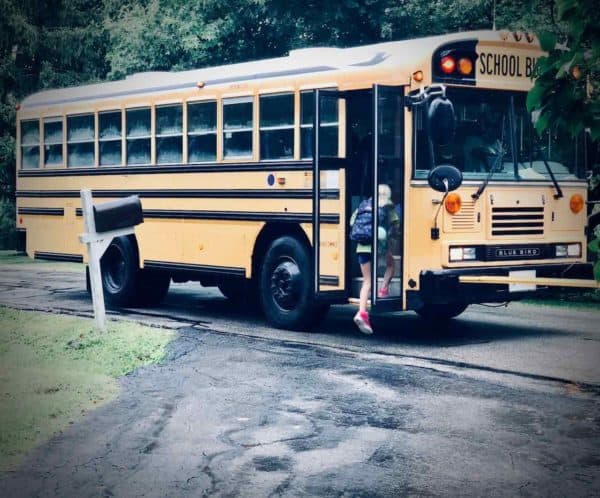Postsecondary education in America is at a crossroads. With 44 million Americans who owe $1.5 trillion in student loan debt, delinquency and defaults ruining the financial future of millions of individuals, and students on the financial hook for paying for something that might not deliver a fair return on investment, learners everywhere are starting to demand an alignment of price and value. One innovative solution that more and more colleges and universities are deploying: income share agreement programs.
The Origination of the Concept
The idea of income share agreements and income-based financing for postsecondary education has been around for some time and has an interesting coalition of supporters across the ideological spectrum. Early proposals for income share agreements were circulated in the 1950s, with the purpose to eliminate financial barriers of individuals seeking to enhance their skills through college or workforce training, but also to align interests between educational providers and students.
In the 1960’s, income-based financing was touted as a major component of an “Educational Opportunity Bank,” proposed during the Johnson administration in the age of the Great Society initiative. And then, in the 1970’s, Yale experimented with an ISA program. The Yale program, though ultimately deemed unsuccessful because of poorly designed payment terms, had positive benefits, like eliminating financial barriers to educational access.
Presently, income share agreements have received renewed interest from higher education stakeholders, universities, and policymakers. Research from Vanderbilt University has demonstrated that loan aversion causes underinvestment in higher education, and even causes individuals to forego college completely. The researchers also compared the framing and labeling effects of loans versus income share agreements, and found that if schools offered ISAs, there would be an increase in educational access, persistence, and completion.
Organizations like the Academy of Arts and Sciences’ Commission on the Future of Undergraduate Education, the Aspen Institute’s Future of Work Initiative, the Urban Institute, the Progressive Policy Institute, and the American Enterprise Institute have written how ISAs can help students and increase educational access and affordability. Even the USA Today and Bloomberg View editorial boards have endorsed ISAs.
And to ensure adequate student protections in this new market are put in place, a bipartisan group of 17 U.S. House lawmakers have supported the ISA Act of 2017, which would create a national regulatory framework for income share agreements.
Vemo Education’s Entry in the Industry
 With colleges and universities looking to implement income-based financing programs, they turned to a new educational technology company, Vemo Education. Vemo Education is considered the market leader in the income-based financing landscape. The company partners with colleges, universities, and skills-based training providers to design, implement, and maintain income-based financing programs. Just a couple of years ago, Purdue University selected Vemo Education to help them build and sustain the Back a Boiler income share agreement program. In just the short time since the launch of Back a Boiler, Vemo Education has already partnered with 30 colleges, universities, and training providers, including schools like Clarkson University in New York, Messiah College and Lackawanna College in Pennsylvania, and Point Loma Nazarene University in California.
With colleges and universities looking to implement income-based financing programs, they turned to a new educational technology company, Vemo Education. Vemo Education is considered the market leader in the income-based financing landscape. The company partners with colleges, universities, and skills-based training providers to design, implement, and maintain income-based financing programs. Just a couple of years ago, Purdue University selected Vemo Education to help them build and sustain the Back a Boiler income share agreement program. In just the short time since the launch of Back a Boiler, Vemo Education has already partnered with 30 colleges, universities, and training providers, including schools like Clarkson University in New York, Messiah College and Lackawanna College in Pennsylvania, and Point Loma Nazarene University in California.
The company has a relentless focus on creating student-friendly programs with schools, which include progressive features like:
- a minimum income threshold to make sure that students don’t have to make payments when in financial hardship
- a payment cap to guarantee a maximum payment limit
- a payment term and a payment window that creates a clear number of payments and a time cap for the when the obligation ends, even if the graduate has paid less than the initial funding amount, or even nothing at all.
Vemo Education is led by its founding team of professionals – Tonio DeSorrento (CEO), Bill Brosseau (VP higher Education), Jeff Weinstein (VP Credit and Analytics) and Renée Mang (SVP Origination and Servicing). The company recently brought on one of the most respected edtech executives in the industry as COO and SVP, Strategy, Katie Blot, who most recently served as Chief Strategy Officer for Blackboard.
What the Future Holds
With Purdue University’s launch of the Back a Boiler program, and Vemo Education’s expertise to help schools launch and sustain responsible income-based financing solutions, more schools are starting to think about how they can utilize programs to increase educational access and affordability. Any innovative model has its pros and cons. By creating school-based income-based financing programs, Vemo Education has taken the lead on being a socially responsible, mission-driven pioneer. Higher education experts and industry analysts are watching the growth of ISAs closely. Thoughtful individuals from across the ideological spectrum are calling for a more humane and socially responsible form of capitalism, and some folks are starting to think that ISAs could be a tool in the toolbox to help deliver a solution.
[Editors Note: This article has been updated from a previous version to better reflect the authors perspective.]
 Stephanie Vaughan is Vice President of Finance and Operations at mixx labs, a venture-backed blockchain protocol for highly secure payments and messaging. Stephanie is an expert in tokenomics, security tokens and capital markets. She was previously a Director at BlockNext Ventures and a Director of Capital Markets / Development at StreetShares. A US Naval Academy graduate, where she majored in Quantitative Economics, Stephanie has a Masters in Business Administration, Finance & Economics, from Columbia University.
Stephanie Vaughan is Vice President of Finance and Operations at mixx labs, a venture-backed blockchain protocol for highly secure payments and messaging. Stephanie is an expert in tokenomics, security tokens and capital markets. She was previously a Director at BlockNext Ventures and a Director of Capital Markets / Development at StreetShares. A US Naval Academy graduate, where she majored in Quantitative Economics, Stephanie has a Masters in Business Administration, Finance & Economics, from Columbia University.


